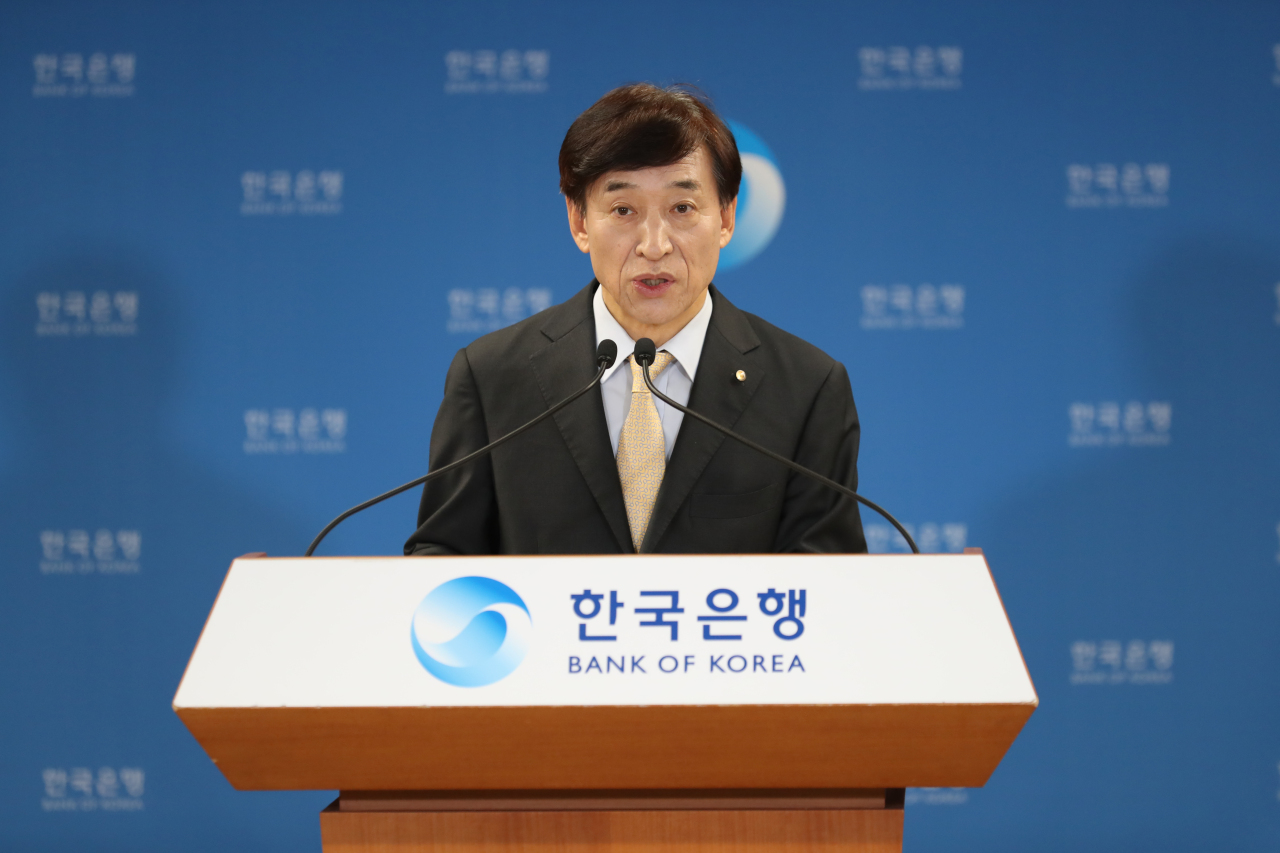S. Korea’s inflation to remain subdued for 2020, post-coronavirus era: BOK
By Jung Min-kyungPublished : June 25, 2020 - 17:12

South Korea’s consumer price inflation is projected to remain at around zero percent for the remainder of the year, the nation’s central bank said Thursday, citing pandemic risks dampening hopes for the initial goal of an annual 2 percent inflation rate.
The annual consumer price inflation is expected to fall 0.1 percentage point on-year to 0.3 percent, weighed on by plummeting oil prices and a slowdown of the global economy following the outbreak of COVID-19, the Bank of Korea noted in its regular half-year report on inflation targeting.
“Despite partial resumption of economic activities in key economies, concerns over additional waves of infection remain high, contributing to sluggish recovery of domestic and overseas oil price recovery,” BOK chief Lee Ju-yeol said in a briefing tied to the report.
“Thus, the consumer inflation rate is projected to remain around zero percent for the time being,” he added.
Asia’s fourth-largest economy’s inflation rate had continued to increase after the fourth quarter of last year, even reaching around 1.5 percent, but quickly fell to the zero percent-level around the April to May period. The growth momentum had slowed down following the outbreak of the virus in February, according to the BOK.
Despite uncertainties that are expected to linger throughout next year, the BOK projected a rosier outlook of 1.1 percent inflation rate for 2021, with risks from plummeting oil prices to dissipate coupled with the general recovery of the domestic economy. Lee also dismissed the possibility of deflation, citing the slow recovery of the inflation rate.
Overall, the trend of low inflation is likely to continue into the post-coronavirus era, with the acceleration of digitalization of the economy, increased pressure on debt repayment and with more people choosing to save rather than spend.
Lee expressed further concerns, saying the global coronavirus outbreak will not only bring about economic recessions, but also big changes to the economic subjects’ behavior and economic structures.
Households and corporations tend to reduce debt and increase savings after experiencing large-scale negative events such as pandemics or financial crises, leading to the birth of “supersavers,” who avoid high-risk financial moves to an extreme level. This could help recover the financial solvencies of individuals, but could pose as an obstacle in achieving a healthy amount of inflation due to a slowdown of investment and spending, according to Lee.
On top of that, the rise of non-face-to-face consumerism could fuel unnecessary competition among firms and cut back on transaction costs, driving lower inflation.
By Jung Min-kyung (mkjung@heraldcorp.com)







![[Graphic News] More Koreans say they plan long-distance trips this year](http://res.heraldm.com/phpwas/restmb_idxmake.php?idx=644&simg=/content/image/2024/04/17/20240417050828_0.gif&u=)
![[KH Explains] Hyundai's full hybrid edge to pay off amid slow transition to pure EVs](http://res.heraldm.com/phpwas/restmb_idxmake.php?idx=644&simg=/content/image/2024/04/18/20240418050645_0.jpg&u=20240419100350)






![[From the Scene] Monks, Buddhists hail return of remains of Buddhas](http://res.heraldm.com/phpwas/restmb_idxmake.php?idx=652&simg=/content/image/2024/04/19/20240419050617_0.jpg&u=20240419175937)

![[KH Explains] Hyundai's full hybrid edge to pay off amid slow transition to pure EVs](http://res.heraldm.com/phpwas/restmb_idxmake.php?idx=652&simg=/content/image/2024/04/18/20240418050645_0.jpg&u=20240419100350)

![[Today’s K-pop] Illit drops debut single remix](http://res.heraldm.com/phpwas/restmb_idxmake.php?idx=642&simg=/content/image/2024/04/19/20240419050612_0.jpg&u=)